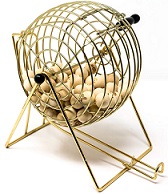His biggest downfall as an accountant was his tendency to generalise.
Whereas this is generally acceptable in literature, meaning that you can shuffle words around in a cavalier manner and get away with-it; not so with accountancy. Not so with numbers. After all, it’s reasonable to assume that a person having an accountant to look over their business or to figure out how much tax they owe the government, would expect a certain preciseness. A certain amount of striving towards the highest level of accuracy. This was something that his employers seemed to take quite seriously. He obviously never saw it that way. His method of accounting seemed to be derived from the notion that numbers were in some way malleable.
Despite the fact that he’d passed all the exams and had a thorough knowledge of modern day accounting practices, this didn’t stop him regarding the odd wild guess as perfectly normal. He didn’t see why he shouldn’t take a bit of a punt now and again. After all, when his report was passed on to the client they would appreciate that the detailed workings were so complex that they would have no chance of picking up any discrepancies. His view on this was that if they could, they’d be an accountant. Eventually, his fuzzy logic approach to dealing with other people’s financial assets caught up with him. So, after a heated debate regarding his work ethics, a slap on the wrist, and agreeing to avoid playing any future part in his qualified calling, he moved on.
As it happens, he found his true calling as the regular bingo caller at the local community hall, three times a week. There could be no doubt that generating and calling out completely random numbers in a totally unpredictable sequence was his idea of pure heaven.
There was simply no accounting for it.
Go figure!
